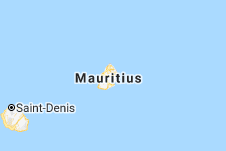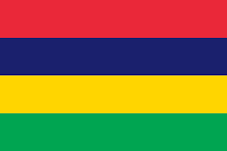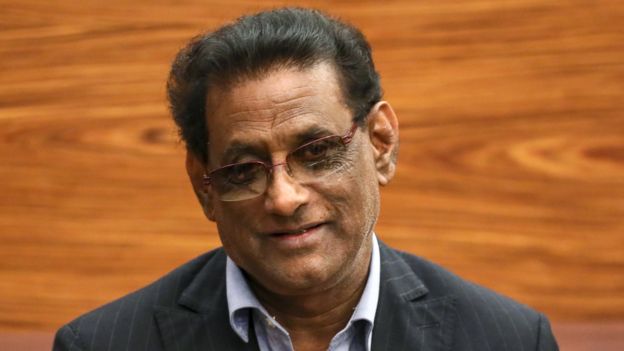
Mauritius

Brief Overview
Located off the southeast coast of Africa, neighboring the French island of La Reunion, Mauritius is an island state of 1.3 million inhabitants. The country’s economy has made great strides since independence in 1968, and Mauritius is now an upper middle-income economy. Key challenges include managing the transition to a knowledge-based economy and adapting to the impacts of climate change.
Small and landlocked, Rwanda is hilly and fertile with a densely packed population of about 12.5 million people (2018). It borders the far larger and richer Democratic Republic of Congo, as well as its closest East African neighbors, Tanzania, Uganda, and Burundi. With the support of the International Monetary Fund (IMF) and the World Bank, Rwanda has been able to make important economic and structural reforms and sustain its economic growth rates over the last decade.
Political Context
Mauritius is a multiparty parliamentary democracy. Shifting coalitions are a feature of politics in the country. The President is the head of state, while the Prime Minister has full executive powers and heads the government. The last legislative elections, held in December 2014, were won by the Alliance Lepep, a coalition comprising the Militant Socialist Movement (MSM), the Mauritian Social Democrat Party (PMSD) and the Liberation Movement. The PMSD eventually left the coalition and joined the ranks of the opposition. In January 2017, following the resignation of then-PM Sir Anerood Jugnauth, the Finance Minister, Mr Pravind Jugnauth, became PM. The new PM reshuffled the Cabinet but retained the Finance portfolio. The next parliamentary election is expected in late 2019 or early 2020.
Recent Economic Developments
The country’s Gross Domestic Product reached 3.7 percent in 2018, in line with trend growth, driven by construction and services sectors (tourism, banking, ICT). Manufacturing and agriculture have been growing at a slower pace, and output in the traditional sugar sector declined. These growth patterns continue an ongoing trend of structural transformation, with more knowledge intensive modern services sectors expanding while some of the sectors that have traditionally provided low-skilled employment stagnating or even contracting.
The baseline scenario is for economic conditions to remain favorable on the back of continuous growth in external demand from tourism and the pick-up in public investment, notably the sizable road decongestion program. Knowledge intensive services sectors are expected to continue to play an important role in driving growth, which may further aggravate the shortage of skilled labor and resulting trend towards higher skills premiums and resulting wage inequality. However, there are significant risks to the baseline forecast mostly resulting from Mauritius’ exposure to external shocks from tourism demand, climate change, and an evolving global environment for the financial sector.
Inflation is moderate, reaching 3.2 percent in 2018. The total masks significant variation over the year with temporary steep increases in food prices in early 2018 causing significant public debate.

The Republic of Mauritius
Capital: Port Louis
Population: 1.3 million
Area: 2,040 sq km (788 sq miles)
Major languages: English (official), Creole, French, Indian languages
Major religions: Hinduism, Christianity, Islam
Life expectancy: 71 years (men), 78 years (women)
Currency: Mauritian rupee
UN, World Bank

Development challenges
Mauritius faces the challenge of managing its transition to a knowledge based high-income economy driven by innovation and productivity growth. This will require a concerted effort to remove bottlenecks to new sources of growth and private investment, such as a lack of connectivity, skills shortages, and misaligned incentives.
While the trend may have recently been reversed, inequality has been on the rise for a number of years. Public transfers have contributed to mitigate the rise in total income inequality. Besides, while general unemployment is low (6.9% in 2018), women face a higher unemployment rate at 10.1 percent, and a much lower labor force participation rate (45.4 versus 74.5 for men). Youth unemployment stands at 22.1 percent and is often the result of a combination of skills mismatch and rising expectations of young labor market entrants resulting in high reservation wages.
Mauritius is highly vulnerable to tropical storms and the risk is amplified by climate change. A multi-hazard risk assessment completed in 2017 suggests that Mauritius experiences on average $110 million per year in direct losses from tropical cyclones and floods. Each year, there is a 1 percent chance of losses exceeding USD$1.9 billion, or 16 percent of Mauritius’ GDP. Mauritius lies within the cyclone area of the Indian Ocean. A large share of the population and productive assets in Mauritius are exposed to multiple risks from cyclones. Flood risk is continuously increasing. The frequency of storms of tropical cyclone strength (winds above 165 km/h) has increased significantly over the past three decades.
Physical Contacts of the Presidency
Name of Minister:
Address:
Telephone:
Fax:
Physical Contacts of the Prime Minister’s Office
Name of Minister:
Address:
Telephone:
Fax:
Physical Contacts of the National Assembly
Name of Speaker of the House:
Address:
Telephone:
Fax:
Physical Contacts of the Chief Of State and Cabinet Ministers
Name of Minister:
Address:
Telephone:
Fax:
Physical Contacts of the Ministry of Interior
Name of Minister:
Address:
Telephone:
Fax
Physical Contacts of the Ministry of Justice
Name of Minister:
Address:
Telephone:
Fax:
Physical Contacts of the Ministry of Foreign Affairs
Name of Minister:
Address:
Telephone:
Fax:
Physical Contacts of the Ministry of Women’s Affairs
Name of Minister:
Address:
Telephone:
Fax:
Physical Contacts of the National Human Rights Commission
Name of Minister:
Address:
Telephone:
Fax:
Physical Contacts of the Police
Name of Inspector General:
Address:
Telephone:
Fax:
Physical Contacts of the Military
Name of Inspector General:
Address:
Telephone:
Fax:
Important Information of Key Human Rights Issues in Mauritius
Number Prisons in Mauritius
Number Prisoners in Mauritius:
Secret Detention Centres:
Police Stations in Mauritius
What are the current and ongoing human rights issues in Mauritius?
(1) Freedom of the Press
(2) Human Rights Defenders Issues
(3) Impunity
African Union (AU)
Joined the OAU in
Signed the Constitutive Act of The African Union on:
Ratified:Instrument Deposited:
Signed:
Ratified:
Instrument Deposited:
Signed:
Ratified:
Instrument Deposited:
Signed: –
Ratified: –
Instrument Deposited: –
4.Protocol on Amendments to the Protocol on the Statute of the African Court of Justice and Human Rights
Signed: –
Ratified: –
Instrument Deposited: –
Signed: –
Ratified: –
Instrument Deposited: –
Signed: –
Ratified: –
Instrument Deposited: –
Signed: –
Ratified: –
Instrument Deposited: –
Signed: –
Ratified: –
Instrument Deposited: –
Signed: –
Ratified: –
Instrument Deposited: –
Signed: –
Ratified: –
Instrument Deposited: –
Signed: –
Ratified: –
Instrument Deposited: –
Signed: –
Ratified: –
Instrument Deposited: –
Signed: –
Ratified: –
Instrument Deposited: –
Signed: –
Ratified: –
Instrument Deposited: –